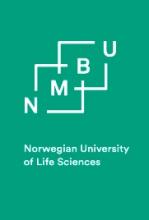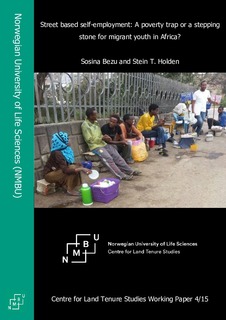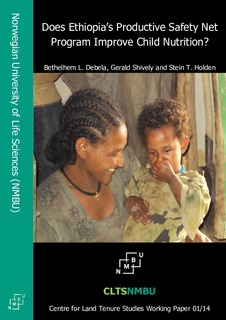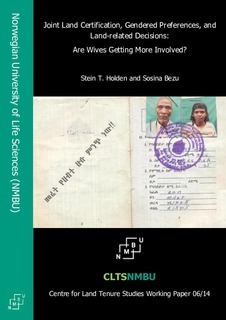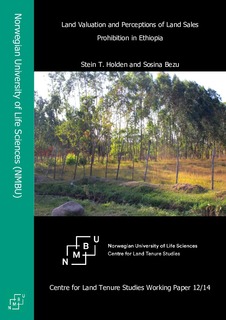Location
NMBU's mission is to contribute to the well-being of the planet. Our interdisciplinary research generates innovations in food, health, environmental protection, climate and sustainable use of natural resources.
About NMBU
NMBU's research is enabling people all over the world to tackle the big, global challenges regarding the environment, sustainable development, how to improve human and animal health, renewable energy sources, food production, and land- and resource management.
Members:
Resources
Displaying 41 - 45 of 98Street based self-employment : a poverty trap or a stepping stone for migrant youth in Africa?
A significant percentage of youth in urban Africa is employed in the informal sector. The
informal sector is more accessible than the formal sector for people with low human and
financial capital, such as youth migrants from rural areas. But the sector is also generally
Alliances for Religions and Conservations (ARC) “Faith Engagement in Climate Smart Agriculture and Sustainable Land Management in Kenya, Tanzania and Uganda
This is a desk appraisal of the Alliances for Religions and Conservations (ARC) done for the Norwegian Agency for Development Cooperation (Norad) by the Department of International Environment and Development Studies, Noragric, at the Norwegian University of Life Sciences (NMBU).
Does Ethiopia's productive safety net program improve child nutrition?
We study the link between Ethiopia’s Productive Safety Net Program (PSNP) and short-run nutrition outcomes among children age 5 years and younger. We use 2006 and 2010 survey data from Northern Ethiopia to estimate parameters of an exogenous switching regression. This allows us to measure the differential impacts of household characteristics on weight-for-height Z-score of children in member and non-member households in PSNP. We find that the magnitude and significance of household covariates differ in samples of children from PSNP and non-PSNP households.
Joint land certification, gendered preferences, and land-related decisions : are wives getting more involved?
We have investigated whether joint land certification in Southern Ethiopia has contributed to a strengthening of the perceived land rights of women and an increase in their intra-household involvement in land-related decisions. We use gender-disaggregated household panel data and generate indices for wives’ and husbands’ land rights attitudes and for wives’ involvement in land-related decisions. After controlling for endogeneity of land certification, using a control function approach, we find that receipt of land certificate has strengthened wives’ awareness of their land rights.
Land valuation and perceptions of land sales prohibition in Ethiopia
This study investigates attitudes towards legalizing land sales and Willingness to Accept (WTA) sales prices and compensation prices for land among smallholder households in four different areas in the Oromia and SNNP Regions in the southern highlands of Ethiopia. Household panel data from 2007 and 2012 are used. The large majority of the sample prefers land sales to remain illegal, and the resistance to legalizing land sales increased from 2007 to 2012. In the same period, perceived median real land values increased sharply but also exhibit substantial local variation.

